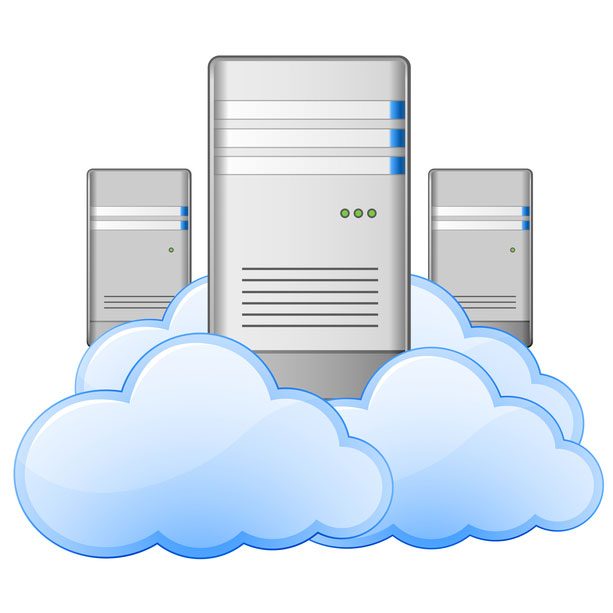Today, there are many website hosting services for individuals and businesses to choose from. May be mentioned as VPS virtual server, Server, Cloud Server… So what's the difference between these services? Together BKNS Find out in the article below!
What is VPS virtual server?
VPS virtual server is a form of server created by dividing the physical server into many different parts, forming many VPS virtual servers. Virtual server has similar features to a private server. And run as a resource share from that original server.
VPS virtual server is the most popular website hosting service today. VPS provides resources and software applications to help customers save costs compared to investing in a physical server.
 What is a physical server?
What is a physical server?
A physical server (Server) is a computer that is connected to a computer network or the Internet. Unlike a normal computer, the server is installed with outstanding features to have high processing capacity. The server has a large storage space and is installed with software to serve other computers to access to request services and resources. Servers are considered the foundation of all services on the Internet. Any service on the Internet such as websites, applications, games, etc., to operate, must also go through a certain server.
Cloud Server
Cloud server (Cloud Server): is a server that combines many different physical servers with a SAN storage system. With outstanding access speed, the cloud server is fast, stable, and has low downtime compared to the physical server. The cloud server is built on the basis of cloud computing technology, so it is easy to upgrade each piece of equipment during use without interrupting the use of the server.
Compare virtual server VPS infrastructure with physical servers and Cloud Server

| STT | Criteria | VPS virtual server | Physical server | Cloud Server |
| first | How it works | Initialized and running on a physical server. | Works as a standalone server. | Store and operate on the cloud computing infrastructure system. |
| 2 | Stability and Availability | – When the physical server fails, it can cause data loss and the system will be affected and stop working. – During peak hours, the physical server may be suspended resulting in VPS downtime. | – When the physical server fails, the entire system will be down. – A damaged hard drive will cause data loss and is unlikely to be recovered. | – Cloud computing technology helps the system to operate stably, uptime ability 99.99%. – All components are set up for backup and automatically replaced when damaged, ensuring the system operates 24/7 with safety and high availability. |
| 3 | Ability of extension | - Complex upgrade. When upgrading, you need to buy specialized hardware equipment – The downtime when upgrading is quite long. | – Cannot scale large resources because the physical server that makes up the VPS is not responsive enough. – The expansion time is quite long to upgrade and expand for the physical server. | – Can expand or shrink immediately when the business needs. - Unlimited resource scalability. |
| 4 | Cost | – Pay for the purchased VPS configuration, even though the demand changes afterwards, it can be much lower than the amount purchased. | – The physical server costs a lot of investment for the entire hardware. – System operation and maintenance costs are also very significant – High cost of backup implementation. | – Pay only for actual needs (CPU, RAM, HDD... configured as required) - Costs can be flexibly changed according to the requirements of the business. |
Give advice
Above are the characteristics of the 3 most popular types of web hosting today. Depending on the flow of information and the development of the company, you should make the appropriate choice to optimize costs.
It can be seen that VPS virtual servers and physical servers have limited resources. If you want to expand or shrink resources, it takes a lot of operations, costs a lot of time, money and interrupts service operations.
As for Cloud Server, it is very simple to upgrade or downgrade resources. And it was done immediately. From there, it can be seen that the stability and availability of Cloud server is much higher than using VPS and physical server.
If comparing the price, VPS virtual server has a cheaper price in the above 3 types of services. If your business does not have a lot of costs, a virtual server VPS is an effective solution to help users deploy quickly and save money.
>>> See more:





Post a Comment
Post a Comment